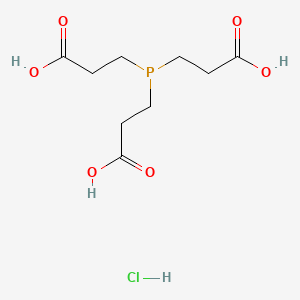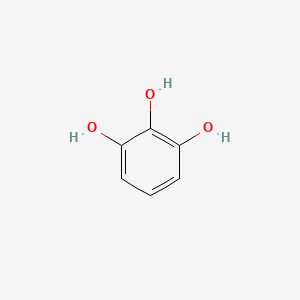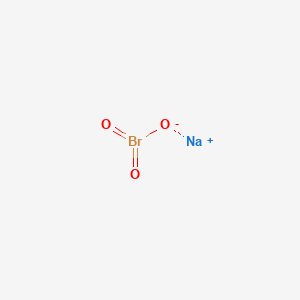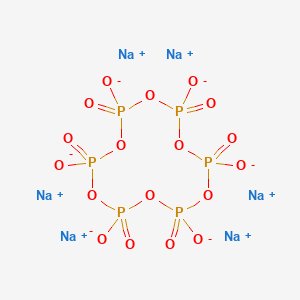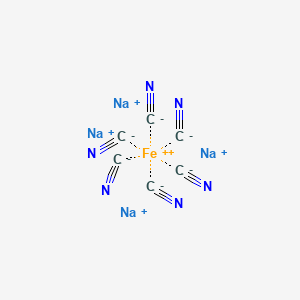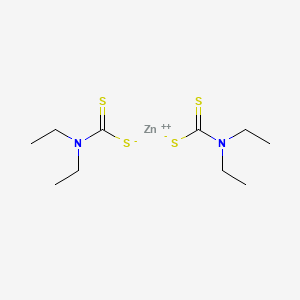Tris(2-Carboxyethyl)Phosphine Hydrochloride CAS 51805-45-9
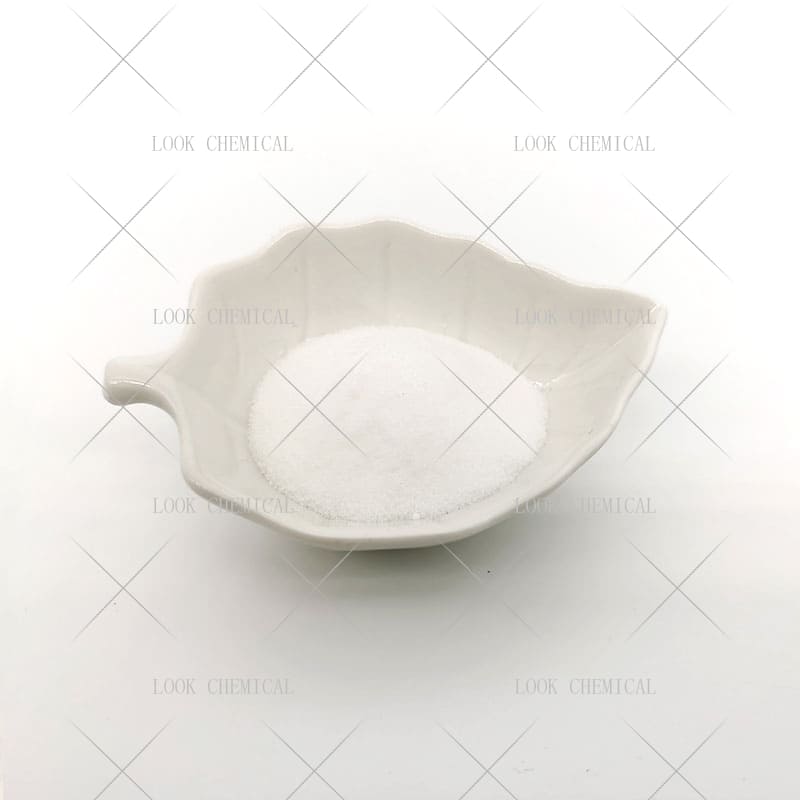
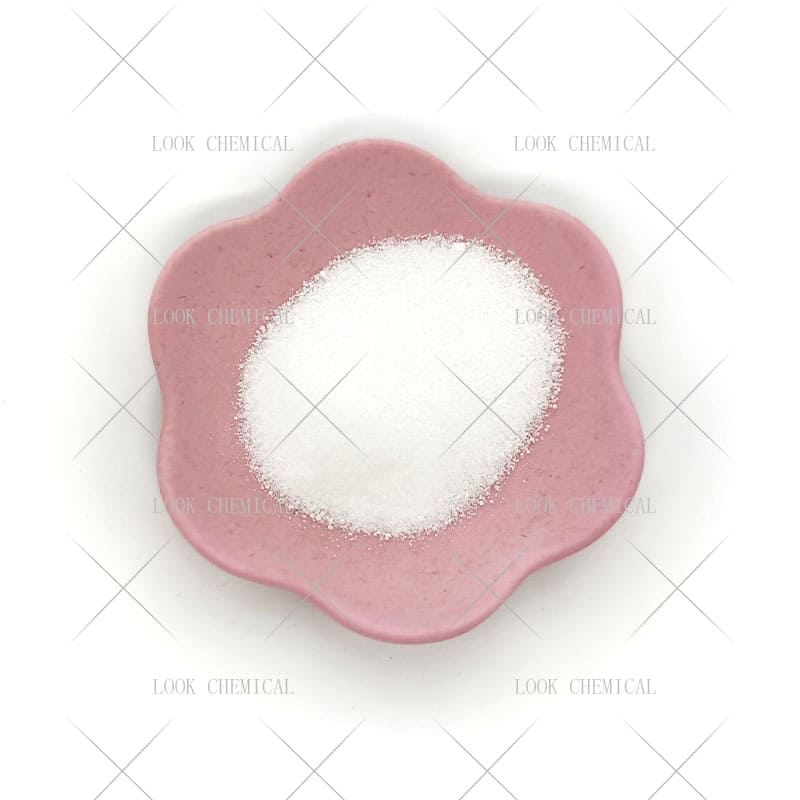
Tris(2-Carboxyethyl)Phosphine Hydrochloride CAS 51805-45-9
- Appearance:Liquid
- Purity:99.8%
- Delivery:30days
- Sample Available:Available
- Payment:L/C,T/T,D/P,Paypal,Money Gram,Western Union
- Incoterm: FOB,CFR,CIF,EXW,FCA,CPT,CIP
- Transporta:Ocean, Land,Air, DHL,TNT FedEx
Name: Tris(2-Carboxyethyl)Phosphine Hydrochloride
CAS: 51805-45-9
MOQ: 1KG
Directory Guidance on Tris(2-Carboxyethyl)Phosphine Hydrochloride
Chemical Structure
Basic Info:
| Melting Point | 177 °C |
| Density | 1.041 g/mL at 25 °C |
| Refractive Index | n20/D 1.367 |
| Storage Temp. | 2-8°C |
Tris(2-Carboxyethyl)Phosphine Hydrochloride Introduction:
Tris (2-Carboxyethyl) Phosphate Hydrochloride, abbreviated as TCEP HCl, is an organic phosphorus compound with important chemical and biochemical functions. Its molecular formula is C9H15O6P · HCl, with a molecular weight of 286.65. It appears as a white to off white crystalline powder at room temperature and is easily soluble in polar solvents such as water and ethanol.
As a reducing agent, the core function of TCEP HCl comes from the synergistic effect of the phosphorus atom in its molecule with three carboxyethyl groups. Phosphorus atoms are in a low valence state (+3 valence) and can effectively reduce disulfide bonds (- S-S -) to thiol groups (- SH) through electron transfer, which makes them important in the field of biomacromolecule modification and stabilization.
Compared with traditional reducing agents such as dithiothreitol (DTT) or β – mercaptoethanol, TCEP HCl exhibits superior reaction efficiency and stability, especially in neutral to weakly acidic aqueous solutions where self oxidation reactions are less likely to occur, avoiding experimental interference caused by oxidation deactivation.
From a synthetic perspective, the preparation of Tris (2-Carboxyethyl) Phosphate Hydrochloride typically starts with phosphorus trichloride (PCl3) and acrylic acid, and generates the target product through nucleophilic addition and acidification reactions. This process requires strict control of reaction conditions, including temperature, pH value, and solvent system, to ensure product purity and yield.
It is worth noting that the crystallization process of TCEP-HCl has a significant impact on the stability of the final product. High-purity crystals can be stored for a long time under dry and light-free conditions without significant degradation. This stable physicochemical property makes it have high practical value in both industrial production and laboratory applications.
TCEP HCl efficiently reduces disulfide bonds, not only maintaining the reduced structure of proteins, but also preventing aggregation or deactivation caused by oxidation of thiol groups. For nucleic acid research, TCEP HCl can effectively eliminate free radicals in solution, reduce oxidative damage to DNA or RNA strands, and play an irreplaceable role in scenarios such as PCR amplification or gene sequencing that require high template integrity.
Nature and Specifications:
| Item | Specification |
| Product Name | Tris(2-Carboxyethyl)Phosphine Hydrochloride |
| CAS No. | 51805-45-9 |
| Appearance | Powder |
| Shelf Life | 2 years |
| Packing | As Your Requirements |
| Solubility | H2O: 50 mg/mL |
| Pka | 7.66(at 25℃) |
| Form | powder |
| Color | white |
Product service:
- Certificate Of Analysis (COA)
- Material Safety Data Sheet (MSDS)
- Route of synthesis (ROS)
- Method of Aanlysis (MOA)
- Nuclear Magnetic Resonance (NMR)
- Packing pictures and loading video before loading
- Free Sample
- Factory audit
The Application Situation Of Tris(2-Carboxyethyl)Phosphine Hydrochloride
In protein chemistry research, Tris (2-Carboxyethyl) Phosphate Hydrochloride is widely used in protein folding and unfolding experiments. By precisely controlling the concentration of reducing agents and reaction time, researchers can reversibly disrupt the disulfide bond network of proteins, thereby studying the relationship between their conformational changes and functions.
In the field of protein crystallography, TCEP HCl is often added to crystallization buffer to maintain the stability of protein monomers and avoid crystal defects caused by random crosslinking of disulfide bonds. Compared to other reducing agents, its low volatility and odorless characteristics significantly improve the convenience of experimental operations.
The advancement of nucleic acid related technologies has further expanded the application boundaries of Tris (2-Carboxyethyl) Phosphate Hydrochloride. In the process of oligonucleotide synthesis, this compound can be added as a stabilizer to the synthesis reagent to prevent oxidative cleavage of thiophosphate bonds.
For the preparation of fluorescent labeled probes, TCEP HCl can effectively reduce the active groups in the labeled molecules, improve labeling efficiency, and reduce the occurrence of side reactions. In next-generation sequencing technology (NGS), TCEP HCl is used in the library preparation process to significantly reduce sequencing background noise and improve data accuracy by eliminating metal ions and free radicals in the solution.
The exploration of the application of Tris (2-Carboxyethyl) Phosphate Hydrochloride in the field of materials science has gradually deepened in recent years. In the synthesis of functional hydrogels, researchers use their reduction ability to regulate the cross-linking density between polymer chains, so as to design intelligent materials with dynamic response characteristics.
During the surface modification process of nanoparticles, TCEP HCl can act as a mild reducing agent to participate in the directional reduction of metal ions, assisting in the construction of uniformly sized and surface functionalized nanostructures. This type of material demonstrates potential application value in drug delivery, biosensing, and other fields.
The demand for Tris (2-Carboxyethyl) Phosphate Hydrochloride in industrial production systems mainly focuses on biopharmaceutical processes. In the purification process of antibody drugs, this compound is used to elute buffer to dissociate non-specific binding between antibodies and chromatography media; In vaccine preparation, TCEP HCl effectively enhances the immunogenicity of vaccines by maintaining the natural conformation of antigen proteins.
The field of industrial catalysis focuses on its potential as an electron donor, such as replacing traditional metal catalysts in specific organic synthesis reactions and promoting the development of green chemical processes.
The Advantages Of Tris(2-Carboxyethyl)Phosphine Hydrochloride
From the perspective of chemical stability, the outstanding advantage of Tris (2-Carboxyethyl) Phosphate Hydrochloride lies in its ability to resist self oxidation. The phosphorus center of TCEP-HCl generates the oxidized state product (TCEP oxide) after the reduction reaction is completed. This product is electrically neutral and has low water solubility. It can be removed by simple centrifugation or dialysis, which greatly simplifies the subsequent purification steps. This “self-consumption” property makes TCEP-HCl particularly suitable for systems that need to maintain a reducing environment for a long time, such as cell culture or enzyme activity research.
The superiority of reaction efficiency is reflected in its mechanism of action with the substrate. Tris(2-Carboxyethyl)Phosphine Hydrochloride The reduction reaction of disulfide bonds follows a specific electron transfer pathway, and the reaction rate constant is 1-2 orders of magnitude higher than that of DTT. This high efficiency enables rapid and thorough reduction at low concentrations (usually 0.5-5 mM), significantly reducing reagent costs and minimizing potential damage to target molecules. For complex biological samples such as serum or cell lysate, TCEP HCl can maintain activity under high salt and high protein concentration conditions, which is a performance indicator that many competitive products find difficult to achieve.
The synergistic use with metal chelating agents (such as EDTA) can further enhance its antioxidant effect without causing precipitation or complexation interference. In the chromatographic analysis scenario, TCEP-HCl does not produce significant absorption in the ultraviolet-visible light region, avoiding background interference of the detection signal.
From a cost perspective, although the purchase price per unit mass is slightly higher than that of traditional reducing agents, its high reaction efficiency brings low dosage, long storage cycle, and no need for frequent solution replacement, which can significantly reduce the overall cost in long-term use. In industrial production, the batch-to-batch stability of TCEP-HCl can ensure process repeatability, which is particularly critical for the production of GMP-certified biological products.
The adaptability to complex systems further consolidated the market position of Tris(2-Carboxyethyl)Phosphine Hydrochloride. In solutions containing denaturants (such as urea, SDS), its reducing ability is not significantly affected, which is of great value for the renaturation study of membrane proteins or inclusion body proteins. In high-temperature environments (such as PCR reactions), TCEP-HCl can still maintain structural stability and will not release by-products that inhibit enzyme activity. This broad-spectrum adaptability makes it a “universal” reagent in interdisciplinary research, promoting innovation throughout the entire chain from basic scientific research to industrial transformation.
Contact Us
Product Package picture:


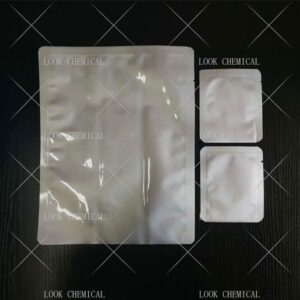
Related References:
Chemicalbook-Tris(2-Carboxyethyl)Phosphine Hydrochloride
Tris(2-Carboxyethyl)Phosphine Hydrochloride Manufacturer
Contact Us
As an experienced Tris(2-Carboxyethyl)Phosphine Hydrochloride manufacturer and supplier, Look Chemical is committed to producing and selling high quality products.
We cooperate and trade with 6000+ factories around the world, and our high-quality products and excellent services make us enjoy a high reputation internationally.
As Tris(2-Carboxyethyl)Phosphine Hydrochloride CAS 51805-45-9 supplier, Look Chemical provides supply chain solutions to partners and customers in a wide range of industries. We offer competitive pricing and quality products.
If you have a demand for this product, please contact our company’s sales staff, we will provide you with a solution in the shortest time.
Transport proposal

1. For products ≤50kg, we recommend using express delivery, which is usually called DDU service (discounted, convenient).
2. For products ≤500kg, we generally recommend air freight, which is usually called FOB, CFR or CIF service (fast and efficient).
3. For products >500kg, we generally recommend shipping by sea, which is usually called FOB, CFR or CIF service (economical, safe).
4. For high-value products, please choose air or express to ensure the safety of product transportation.
Shandong Lookchemical service:
* Timely reply and 24 hours online, the professional team will provide you with the most favorable prices and high-quality products.
* The sample supports testing and inspection.
* Each batch of products will be tested to ensure that its quality meets user needs.
*Packaging can also be made according to customer requirements.
*Any inquiries will be answered by our relevant personnel within 24 hours.
*We will provide you with commercial invoice, packing list, packing list, COA, health certificate and certificate of origin if you need it. If your market has other special requirements, please let us know.
*We will monitor the logistics information in real time and will share the information with you.
* You can consult us at any time if you have any questions about the product, and we will answer you in time.
*If you have any questions about the product, you can report it to us, we will deal with it in time for you, and the product can be returned.
Contact Us
Frequently Asked Questions(FAQ):
We will make samples before mass production, and after sample approved, we’ll begin mass production. Doing 100% inspection during production, then do random inspection before packing.
Our MOQ is 1kg. But usually we accept less quantity such as 100g on the condition that sample charge is 100% paid.
Yes. We’ll give you product analysis report before shipping.
Different quantity has different discount.
Yes. Welcome to visit.
You can get free samples for some products,you only need to pay the shipping cost or arrange a courier to us and take the samples. You can send us your product specifications and requests,we will manufacture the products according to your requests.

